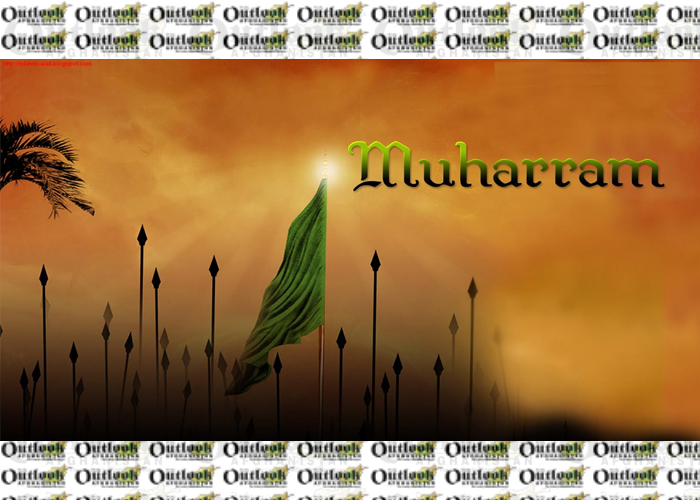The Holy Month of Muharram is celebrated annually among Muslims to commemorate the martyrdom of Imam Husain (A.S) and his companions whose blood was spilt in the scorching desert of Karbala, a city in Iraq. Denying to pledge allegiance to the dictatorial regime of his time, he sought to revive moral values and religious tenets at the cost of his life. Husain (A.S), the grandson of Prophet Muhammad (PBUH), showed no sense of fear and played his constructive role heroically to reform the society.
The philosophy behind his historic revolution, based on his statement, was to revive religious principles, moral standard, and human values. Husain (A.S) refused to be coerced into pledging loyalty to Yazid’s regime and aimed to free the society from violence, tyranny, oppression, moral turpitude, etc. Being recommended to yield to the dictatorial regime of his time, Husain (A.S) replied, “I will never surrender to them like a humiliated person and never pledge allegiance to them like slaves.” He preferred martyrdom to a wicked life and deemed it a moral responsibility to release those who were subdued to coercion and brutality.
His main objective was to stop the spirit of religion from moribund and teach a lesson of humanity to the world through his practices. He urged people to listen to the call of their conscience and beckoned them to join him in his revolution against despotism. He voiced his concerns over the flagrant violation of religious tenets and moral standards. To put it succinctly, he cherished humanity, spiritual purpose, and divine message.
To view the revolution of Karbala from the perspective of the current era, Husain (A.S) deemed it his right whether or not to pledge loyalty to a regime. After all, his spiritual status as “Imam” would not allow him to yield to a cruel system.
However, the philosophy of the revolution in Karbala was not either realized truly or was turned a blind eye. For instance, the tragic aspect of this revolution is highly prominent across Islamic societies that has outshined other angles. An overwhelming number of people shed tears without regarding the objective of Husain (A.S) or following his footsteps – i.e., valuing divine messages, humanity, and moral standards. That is to say, scores of people who live under cruelty or breathe no words for protecting their rights and freedoms mourn for an individual that lived a free life and safeguarded his soul against evils. It is the tragedy of our time to see that people focus on the wounds inflicted on his body rather than his soul that spread the message of freedom and humanity. Although his blood was spilt mercilessly, each drop of his blood was a stain on the face of Yazid’s regime and stigmatized it forever. It is an unmistakable fact that the death of a freedom-fighter, religious reformer, or simply a well-intentioned individual will be tragic for a society, but this tragedy is not supposed to overshadow other aspects.
The followers of Imam Husain (A.S) ought to practice upon religious tenets in its true way; respect the rights, freedoms, and dignity of others; uphold moral standards and humanity; show religious tolerance; and defend the right versus the wrong in their daily life. Those who show interest towards the revolution of Karbala, need to figure out its philosophy. Moreover, religious preachers will have to enlighten all aspects of this historical revolution rather than simply speaking about the tragedies and merciless killings occurred in Karbala.
Religious extremism is one of the issues that preachers need to point out its ugliness more than ever before. Husain (A.S) revolted against cruelty and coercion and intended to protect the true spirit of religion against the false interpretations or practices. Extremism has stemmed from radical interpretation of religious tenets exercised by the ideologues who regard religion from bird’s eye view. Indeed, religious extremism, which has changed into a global threat, is against the objectives of Karbala’s revolution and in direct conflict with religious mainstream. Husain (A.S) did not violate the rights or freedoms of others but resisted cruelty and violation of his rights. Since religious extremists know no moral or religious boundaries, they even target mourning proceedings and mosques. Hence, their anti-religious practices are against humans and humanity.
To sum up, Islamic societies had better pay heed to the holy objectives of this revolution more than its tragic aspect. The heroic movement of Husain (A.S) and his selfless act for reviving religious values and ethical code are a unique lesson for all human societies that the history has ever recorded. But reducing the sacred goal of this revolution to mourning ceremonies will be a blow to Islamic societies. His valuable slogan “death with humanity is better than a life of humiliation” reveals his virtue and lofty soul. It, indeed, was the revolution of virtue versus vice.
Home » Opinion » Message of Historical Revolution
Message of Historical Revolution
| Hujjatullah Zia

